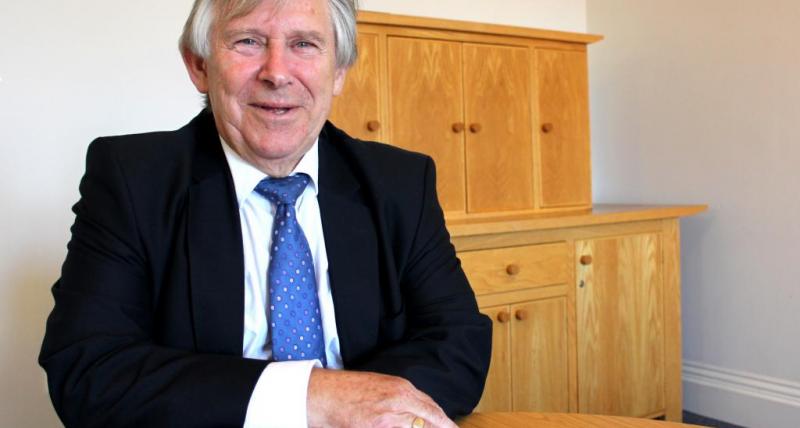
North Tyneside’s Senior Coroner has stepped down following a career spanning five decades.
Eric Armstrong became Deputy Coroner in 1976 before being appointed Senior Coroner in 2003.
He retired at the end of last month (September) and has been succeeded by Newcastle Senior Coroner Karen Dilks who will also act as Senior Coroner for North Tyneside.
Born in Blyth in 1944, Mr Armstrong worked as a solicitor in a private practice before becoming a coroner.
He covered many aspects of the legal profession, including criminal defence and prosecution, family law and accident claims.
“I wouldn’t do it now though,” he adds. “You’re put in a speciality today but I always appreciated the diversity and the coronership was simply another part of that.”
He carried on as a solicitor alongside his role as coroner until 2011.
“Being a coroner is officially a part-time role but you’re on call 24 hours a day, seven days a week, 365 days a year,” Mr Armstrong explains.
“I’ve been contacted while I’ve been on holiday in various parts of the world, twice on Christmas Day morning and many times in the middle of the night.
“It’s an interesting and difficult job. I believe I have done what I can to help bereaved families.
“But, understandably, they’re never going to be happy – they’ve just lost someone they love.
“It can be emotionally stressful especially when you’re dealing with babies and children – that hits you hard – and servicemen and other young people.”
One regret, he says, is that he still sees one cause of death far too often.
“I had hoped that by the time I retired I would no longer be dealing with asbestos-related deaths but it is still a problem.
“There are also far too many deaths among the elderly due to falls and they have died as a consequence.
“I think suicides are increasing. We see more suicides among young people and drug deaths too – that seems such a waste of a life.”
Mr Armstrong has handled some high-profile inquests in his long career, including PC David Rathband, the officer shot and blinded by Raoul Moat, and more recently Love Island star Sophie Gradon.
The role of Coroner has existed since 1194, but the duties have changed over time.
“Our job now is a fact-finding mission, to determine who died, when, where and how they died.
“However we don’t look for a reason why someone might take their own life, nor seek to establish blame for an accident and I understand how frustrating it can be for families when we can’t answer all their questions.
“We can’t always find a precise reason for someone’s death but we can lean towards a cause, for example of unascertained natural causes, if we can exclude trauma, poisoning, or third party actions.
“I have been reduced to tears, there are very few coroners who haven’t, and you try not to take it home with you and have as happy a home life as possible.”
A home life he will soon be able to devote much more time to as he prepares for his well-earned retirement.
He plans to spend more time with his family – he has two sons and a daughter, none of whom followed in his footsteps, and three grandchildren with another on the way.
“I enjoy woodworking and I’ve promised to make my grandson a chess board.
“I’m hoping to get out and play some golf too but my wife has threatened to lock me in the garage for six months while I clean it out!”
But he adds: “One thing’s for sure though – I certainly won’t be watching any CSI or shows like that as they couldn’t be further from the reality of being a Coroner!”
TOP FIVE CORONER FACTS (ACCORDING TO ‘THE HISTORY OF THE CORONER’S ROLE’):
1. The role of Coroner has included medieval tax gatherer to an independent judicial officer charged with the investigation of sudden, violent or unnatural death.
2. The duties of early Coroners included the investigation of any aspect of medieval life that had the potential benefit of revenue for the Crown.
3. After the Norman Conquest, to deter local communities from the habit of killing Normans, a heavy fine was levied on any village where a dead body was discovered, on the presumption that it was proved to be Norman, unless it could be proved to be English. The fine was known as ‘Murdrum’, from which the word ‘murder’ is derived.
4. In January 1846 the Coroners’ Society of England and Wales was formed – at the time there was growing concern that, given the easy and uncontrolled access to numerous poisons, and inadequate investigation of the actual cause of death, many homicides were going undetected.
5. By the time of the introduction of the Coroners Act of 1887, Coroners became more concerned with determining the circumstances and actual causes of sudden, violent and unnatural deaths for the benefit of the community as a whole.
